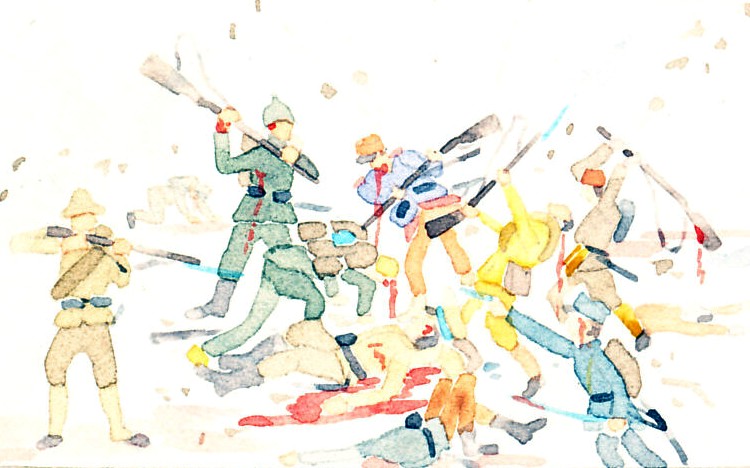Will's Cigarettes card of General Aleksei Brusilov (Brusiloff).

Will's Cigarettes
General Brusiloff
Reverse:
No. 41 of the series Allied Army Leaders, a series of 50 from Will's Cigarettes
Passed for publication by the Press Bureau, 28.12.16.
General Brusiloff.
Gen. Alexey Alexeyevitch Brusiloff, the brilliant Russian leader in Galicia, is about 64 years of age, and first saw active service in the Russo-Turkish war of 1877. Before the present war he was widely known as a daring cavalry officer of exceptional ability. In 1915 he led the Russian dash over the Carpathians, and in 1916 commanded the four Armies of the Russian left-wing which broke through the Austrian front and reconquered Galicia, inflicting very great losses on the Austro-Germans.
W.D. & H.O. Wills
Bristol & London
Issued by the Imperial Tobacco Co. (of Great Britain & Ireland) Ltd.
Other views:
Larger, Back
